Conrad Johnson's Blog, page 12
October 28, 2018
What about those Galileans? (and other Jewish slaughter stories)

“What About Those Galileans?” (Luke 13:1-9)Whenever there’s an unusual tragedy in the news–a violent death or a natural disaster, a murder, an earthquake–people begin to search for an explanation. They look for meaning. They’re perplexed. They don’t understand why this great tragedy occurred. They ask questions. Why? Why did this awful thing happen? Often they look for somebody to blame. They blame the perpetrator, if it was a crime. Sometimes they blame the victim, thinking that the person must have done something to deserve this. And sometimes they’ll blame God for allowing this evil to happen. Those are the standard reactions to the terrible tragedies that get our attention in our day. And, as we’ll see, this is nothing new. People back in Jesus’ day speculated about why terrible tragedies occurred. We see it in their question to Jesus, “What About Those Galileans?” Continue to full post here.
Published on October 28, 2018 18:41
What about those Galileans? (and other mass murder stories)

“What About Those Galileans?” (Luke 13:1-9)Whenever there’s an unusual tragedy in the news–a violent death or a natural disaster, a murder, an earthquake–people begin to search for an explanation. They look for meaning. They’re perplexed. They don’t understand why this great tragedy occurred. They ask questions. Why? Why did this awful thing happen? Often they look for somebody to blame. They blame the perpetrator, if it was a crime. Sometimes they blame the victim, thinking that the person must have done something to deserve this. And sometimes they’ll blame God for allowing this evil to happen. Those are the standard reactions to the terrible tragedies that get our attention in our day. And, as we’ll see, this is nothing new. People back in Jesus’ day speculated about why terrible tragedies occurred. We see it in their question to Jesus, “What About Those Galileans?” Continue to full post here.
Published on October 28, 2018 18:41
October 25, 2018
Documentary Review: American Gospel-Christ Alone
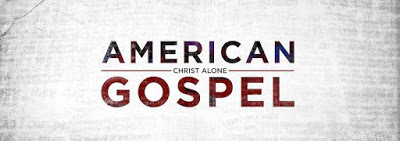 by Tim Challies
by Tim ChalliesI would like to think we’re coming into a golden age for documentary film and television. There are many reasons for this, though most are related to the new digital economy. Not only does the internet provide new channels for distribution, but it also provides new methods for fundraising. Creating a film is extremely expensive, but crowdfunding (via Kickstarter or its many competitors) can defray that expense across hundreds or thousands of people. Meanwhile investors and other financial supporters are seeing greater promise in the medium. Filmmakers are responding by creating some excellent new works that may not have been possible even a decade ago.
New to the field is American Gospel: Christ Alone , a film about what Americans understand to be the good news of the Christian faith. It asks, “Is Christianity Christ + the American dream?” It then tells “how the prosperity gospel (the Word of Faith movement) has distorted the gospel message, and how this theology is being exported abroad.” It is, in short, a film about how the gospel espoused by so many so-called Christians is not good news at all. This gospel is not drawn from the Bible but from the worldly desire for a long, comfortable, and affluential life. Read the full article here.
(Writers Alive note: The emphasis of theological perspective in this documentary is Premillennialist Cessationism with some exception. I say this because I know the eschatological beliefs of the dispensationalist preachers used in this film. Very Southern Baptist to say the least. Nevertheless, it's worth checking out even though it's a bit tedious in places and could have been reduced some IMO)
Published on October 25, 2018 19:30
October 15, 2018
What is an evangelical?
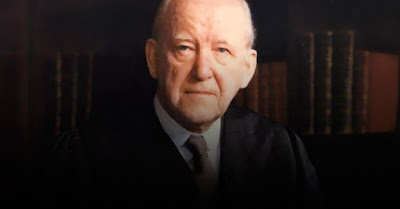
Dr. Martyn Lloyd-Jones (MLJ) is perhaps best-known as Britain’s leading biblical expositor throughout the twentieth century. Today we are going to hone in upon the second of his three addresses at the 1971 International Fellowship of Evangelical Students (IFES) Conference in which he outlined thirteen key characteristics of evangelicals.See more: http://evangelicalfocus.com/magazine/2833/LloydJones_What_is_an_Evangelical
Published on October 15, 2018 18:43
October 13, 2018
The Golden Calf
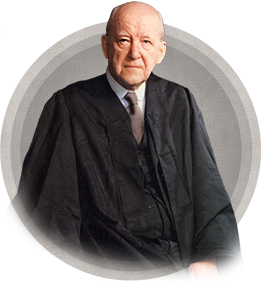
Sermon from the Book of Acts
The impossibility of an intellectual acceptance of the Gospel; man and the making of his own gods; man's intellect judges God; reasons for the rejection of the Bible; the consequences when man turns from God.
Published on October 13, 2018 17:33
Hope For North Korea (opendoorsusa.org)
Help Shine a Light
This month, we are inviting you to help shine a light on the situation for Christians who live in North Korea. Below is a meme that will help tell one Christian?s story. Can I ask you to share it this week? Please also be sure to check out the Hope4NK page and share it with a friend!Check Out Hope4NK PageJoin People Praying Around the World
Throughout the month we will also be encouraging people to join us in participating in the International Day of Prayer (IDOP) on Sunday, November 4. Check out the IDOPpage and download your free kit that will help you pray and share with others. Download Your FREE KitOnline IDOP Prayer Gathering
On Saturday, November 3, we will host an online prayer gathering that will feature an interview with a North Korean Christian who will help us understand what it?s like for believers there. We hope you register for this prayer gathering and invite your friends and family to join you!Register For IDOP Prayer GatheringReview Prayer App
Have you downloaded the Pray for the Persecuted app? If so, how are you liking it? Can you help us out by leaving a review? And if you have not yet downloaded this FREE app, it?s not too late! Receive prayer requests directly to your phone and easily share with others to ask them to join you in praying!Apple StoreGoogle PlayThanks for continuing to use your voice for the persecuted church. If you have any questions please do not hesitate to contact me.

This month, we are inviting you to help shine a light on the situation for Christians who live in North Korea. Below is a meme that will help tell one Christian?s story. Can I ask you to share it this week? Please also be sure to check out the Hope4NK page and share it with a friend!Check Out Hope4NK PageJoin People Praying Around the World
Throughout the month we will also be encouraging people to join us in participating in the International Day of Prayer (IDOP) on Sunday, November 4. Check out the IDOPpage and download your free kit that will help you pray and share with others. Download Your FREE KitOnline IDOP Prayer Gathering
On Saturday, November 3, we will host an online prayer gathering that will feature an interview with a North Korean Christian who will help us understand what it?s like for believers there. We hope you register for this prayer gathering and invite your friends and family to join you!Register For IDOP Prayer GatheringReview Prayer App
Have you downloaded the Pray for the Persecuted app? If so, how are you liking it? Can you help us out by leaving a review? And if you have not yet downloaded this FREE app, it?s not too late! Receive prayer requests directly to your phone and easily share with others to ask them to join you in praying!Apple StoreGoogle PlayThanks for continuing to use your voice for the persecuted church. If you have any questions please do not hesitate to contact me.

Published on October 13, 2018 17:18
October 9, 2018
Classic book review: John Murray and The Epistle to the Romans
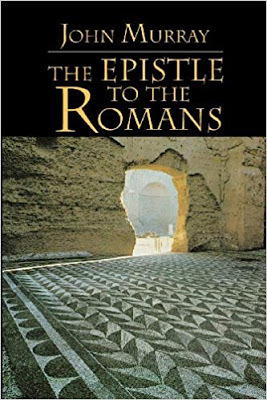
For Reformed theologians and Berean Christian students alike, the academic writings of the Scottish born professor of Systematic Theology, John Murray, are well known and held in high regard. For the rest of us mere mortals, an introduction to this man's oeuvre might be helpful. His exhaustive commentary on Romans is a very good place to start exploring the exemplary precision of this theologian's academic acumen. From it, the reader will comprehend the hermeneutical process Murray uses to exegete biblical truths out of the Good Book.
The format of this commentary is fairly straightforward, parsing Romans using both the traditional chapter and verse markers along with, what most commentators agree is, a paragraphing of ideas throughout the text since the original manuscripts showed no breaks in thought (as was the customary style of writing in the Koine Greek at the time). Murray has done well, in my opinion, of dividing Paul the Apostle's argument into cogent 'chunks' that other highly respected Reformed theologians like Dr. Martyn Lloyd-Jones would approve of. And just like The Doctor, Murray rarely offers an opinion outside of strict orthodox understanding without substantiating it with sufficient text, referring to and reproducing the original Greek (and sometimes even the Hebrew) with detailed footnotes at the bottom of almost every page throughout this two volume collections of books numbering 676 pages in total. And not only does he cite text, many times he will tell you exactly which original manuscript he uses as a source.
Any advanced student of language or linguistics will also appreciate Murray's grammatical analysis of tense, mood and inflection from the original Greek in order to verify his conclusions about a certain passage. For example, please refer to the following footnote image in which Murray details his understanding of Romans 8:11b: "he that raised up Christ Jesus from the dead shall give life to your mortal bodies through his Spirit that dwelleth in you."
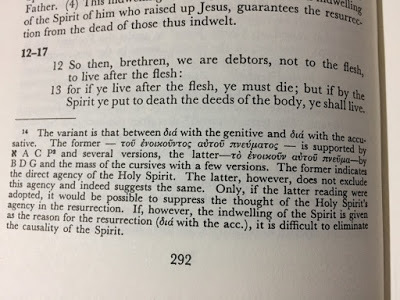
All in all, Murray's commentary on The Epistle to the Romans is not for the fainthearted or the Sunday morning church goer who is simply satisfied with tabloid sermonettes or pop theology. It is written for Christians who hunger for a richer taste of the Word and who "pant after God like a deer that pants for water" (Psalm 42:1). Christ Jesus said that "this is eternal life, that they might know you, the only true God" (John 17:3). I know of know other way to know God except the Way that He has revealed himself to us through Scripture. Anyone who truly desires a deeper understanding and fuller drink from the well of living water that Christ has promised to all those who believe, would do well to make time to read John Murray despite the challenges involved because it is the glory of God to conceal a matter; to search out a matter is the glory of kings (Psalm 25:2). And as the Apostle Peter writes: But you are a chosen race, a royal priesthood, a holy nation, a people for his own possession, that you may proclaim the excellencies of him who called you out of darkness into his marvelous light (1 Peter 2:9).
Exercise your regal prerogative and, like Martin Luther who was transformed by the reading of Romans, do not rest satisfied until you have climbed up the Tree of Life, shaken every branch, turned over every leaf and searched tirelessly for the wondrous hidden mysteries that live in God's Word.
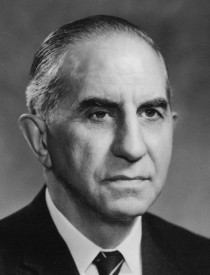 John Murray 1898-1975
John Murray 1898-1975
Published on October 09, 2018 12:20
September 26, 2018
August 30, 2018
BOOK REVIEW: Jesus Through Middle Eastern Eyes
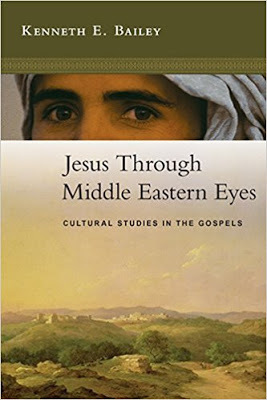
Jesus Through Middle Eastern Eyes: Cultural Studies in the Gospels by Kenneth E. Bailey is a book about the historical Christ that every serious disciple should read in order to better understand the communal significance of the Lord's teachings and, especially, his parables.
Bailey, who spent over a half century in the Middle East studying and teaching Scripture and biblical languages, including Arabic, Syriac, Aramaic, Greek and Hebrew, strips away the layers of myth and time that have encased the narratives about Christ with centuries of misconception. He analyzes the parables using, what he calls a "prophetic rhetorical template" based upon Old Testament patterns. Enthusiasts of rhetoric and composition will find this application of chiasmatic structure particularly enlightening.The gospels are nothing if not sheer poetic genius and, as Bailey calls it at one point, filled with "hypertext links" to the Law and the Prophets. Jesus was, if you will, a walking Wikipedia of scriptural truth and he expounded his knowledge in a context that his listeners would have immediately recognized. For us, in the hyperactive world of Western 21st century modernity, much of his references and nuanced teachings are lost and separated from their original context.
Drawing upon a vast amount of resources, both current and ancient, Bailey is brilliantly able to reconstruct for a reader who has the slightest imagination a three dimensional portrait of the Messiah that is most likely to influence one's understanding of the richness behind the parables and narrative scenes found in the gospels. The author relies frequently upon the Mishnah to explain what contemporaries of Christ would have readily comprehended regarding such things as receiving itinerant rabbis into their homes and the customs surrounding such happenings. Equally, he draws upon early Arabic gospel commentaries by such unknown scholars like Ibn al-Tayyib, a 11th century physician, monk and priest from Baghdad whose works are virtually unheard of in the West. Only someone with Bailey's amazing linguistic talents and life experiences could bring the life of Christ closer to our hearts through a multifaceted, scholarly analysis of text that illuminates from a cultural and linguistic perspective of that era. You could almost say, "you had to be there" to get it, but, because of Bailey, this book is the next best thing. Throw in some Holy Spirit guidance and, if you don't know these things about the cultural milieu surrounding Jesus' ministry like I didn't, you will benefit greatly from this book.
Even though Jesus Through Middle Eastern Eyes is scholarly in its intent, Bailey's straightforward manner, along with numerous references and use of rhetorical templates, makes for a thoroughly enjoyable read if you leave out the author's inclination towards a Liberation Theology approach to exegesis. All in all, I'm sure that you will gain a much clearer picture of the true historical Jesus through this and the other books that Bailey has written.
Published on August 30, 2018 19:24
August 26, 2018
BOOK REVIEW: A True Feminist- Gladys Aylward-The Little Woman
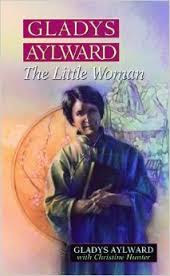
A common misconception amongst nonbelievers is that Christianity and (what the world calls) feminism are mutually exclusive social forces. This official autobiography of an early 20th century British woman's solo journey to China as a missionary during the Sino-Japanese war proves the opposite.
There's nothing clever or gender specific about courage. It's attractiveness lies in the sheer force of its will to overcome seemingly insurmountable odds. Aylward simply believed that God would guide her across Europe and Russia via rail alone, and without having practically any formal training and hardly any church support, she left London one day with her Bible, passport, some pocket change and a few traveling items to follow her heart's call to be a missionary in China.
If you're looking for smart poetic writing in a story, Gladys Aylward: The Little Woman is not for you. But, if you want true grit, honest adventure and historic drama verified, than read this British woman's inspiring journey and how she spent a lifetime preaching and teaching the gospel and taking care of thousands of orphans during one of the most brutal eras in recent history.
Aylward taught herself fluent Chinese and worked in a rural province amongst the dirt poor needy and deprived victims and refugees of the war to rescue as many as she could from physical and spiritual suffering alike.
Her evangelizing gifts budded in London first where she says she "went into public houses and rescued girls the sailors had made drunk." Gladys took them back to her hostel and on Sundays took them to a Gospel Mission. Church history, as well as Scripture, testifies that the Lord tests those who he has great plans for in small ways before leading them on. For example, David first bravely fought Goliath and then became King of Israel's armies, leading them from battle to victorious battle for the sake of the Kingdom.
What started out as a ministry in her native England turned into an international lifetime service of giving hope and succor to some of Asia's most neediest during a pivotal time in China's social and cultural history. As much as Aylward despised godless Communism, she was able to take advantage of the new regime's anti foot binding laws that intended to free females from a centuries old tortuous custom. She landed a job as a "foot inspector" and was given a couple of soldiers and told to go into the most remote locations to enforce the new law (but only if they agreed to let her spread the gospel of Christ). Her duties made her less popular than a tax collector but she persisted and led many to freedom, at one time even guiding 100 orphans over mountains and through dangerous battlefield zones in order to secure their safety from the Japanese.
Aylward briefly returned to England after the war and was dismayed at the lack of vigor in the modern Christian church. She said that it was easier "to preach to the heathen than to motivate saints with feet of clay." After some interactions there and in Ireland, she eventually returned to Taiwan and received honors from the Free China government where she eventually died and was buried. The book is a riveting read and you can hear this remarkable woman's voice on tape in this YouTube clip below. Mother Theresa may have gotten more press, but Aylward gets more glory in God's book, I'll bet.
There is neither Jew nor Greek, there is neither slave nor free, there is no male and female, for you are all one in Christ Jesus.--Galatians 3:28
Published on August 26, 2018 17:38
Conrad Johnson's Blog
- Conrad Johnson's profile
- 47 followers
Conrad Johnson isn't a Goodreads Author
(yet),
but they
do have a blog,
so here are some recent posts imported from
their feed.



